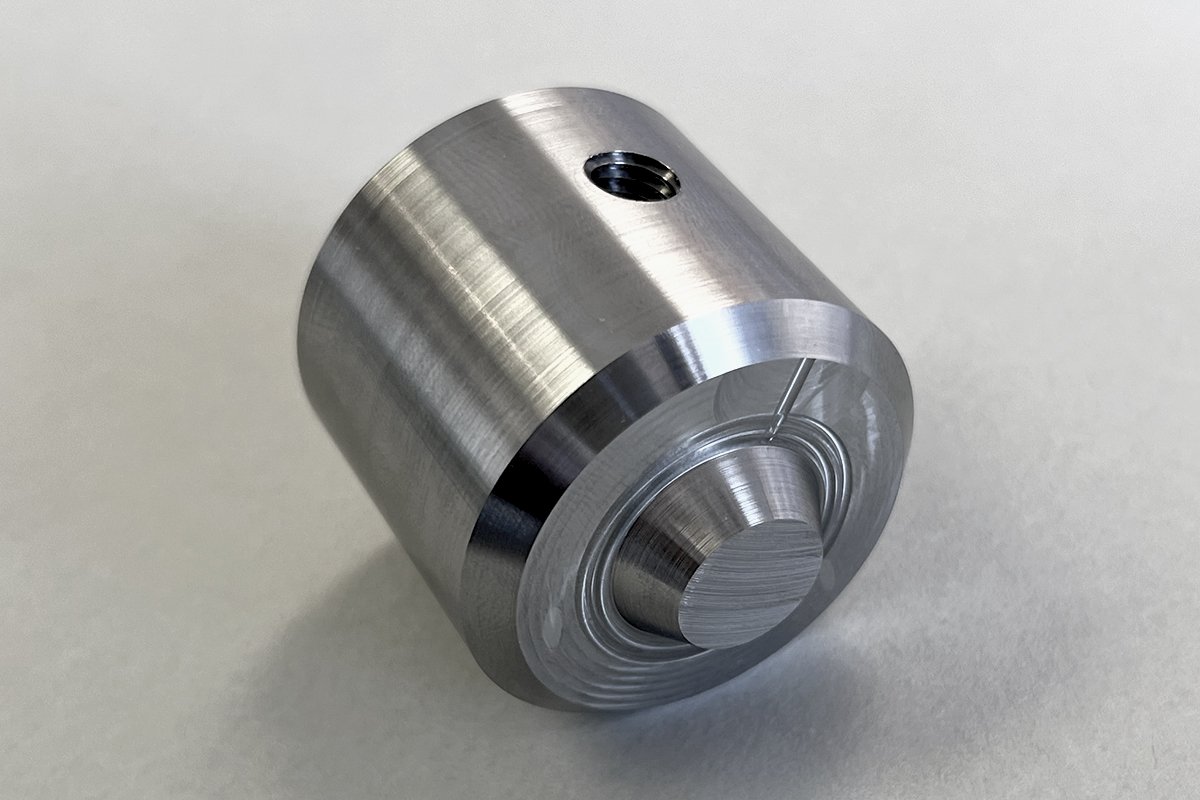Considerations for Precision Machining Hard Metals
Hard metals are the only choice for certain medical, aerospace, defense, energy, and other CNC machining applications. But if you need machined parts made from a material like 400 stainless steel, Inconel, or titanium, it is important to find a precision machine shop that is truly capable of machining these materials to your desired specifications.
Why? Because hard metals are notoriously difficult to machine, and not every manufacturer has the equipment, mindset, and expertise to handle them.
Challenges of Machining Hard Metals
Precision machine shops must be equipped to overcome these challenges that commonly arise when working with hard metals:
Chatter
A term for excessive vibration that can occur during the precision machining process, chatter leads to quality issues such as poor surface finishes and unmet tolerance specifications. Chatter also causes uneven wear on the machine tool and can cause the tool to break.
To control chatter, shops may need to use shorter and wider cutting tools, slow the spindle speed, perform shallower radial cuts, and support thin-walled parts with filling material.
Runout
Caused by a cutting tool with diameter inconsistencies, runout occurs when the tool does not accurately engage the workpiece on radial cuts. During end mill rotation, every tooth must cut into the same place on the workpiece or the part’s corner radii will be inaccurate.
Machine shops can minimize runout with a combination of leveraging high-speed machining, employing high-quality tool holders, and engaging full look-ahead on machining centers to reduce feed rates as needed.
Work hardening
Work hardening is the result of excessive heat transfer from the cutting tool to the workpiece. Along with increasing the material’s hardness and making machining even more difficult, work hardening often causes tool breakage and renders parts unusable.
Machine shops can prevent work hardening by maintaining sharp cutting cools, reducing the cutting tool’s radial engagement, and incorporating a through-spindle coolant.
Why Trust Summit CNC with Your Hard Metal Machined Parts
Hard metals may be difficult to machine, but they offer unmatched benefits for applications as diverse as aeronautics, medical devices, and oil & gas.
Because these ultra-tough materials play such critical roles in modern society, Summit CNC is proudly equipped with the knowledge and skills necessary to machine your hard metal parts.
These five house standards keep us at the top of our game:
1. We’re a team of problem solvers
Though the US manufacturing industry continues to experience a concerning shortage of skilled workers, Summit CNC is fortunate to employ a team of expert programmers and operators who are adept at working with hard metals.
Our machinists are also excellent problem solvers. When we encounter any issue, we don’t let it stand in our way. We explore all the variables at play and make adjustments until we come up with a solution.
One recent job required that we machine a part from 304 stainless steel. Our customer’s design called for a tall, bottoming key cut with small corner radii. We successfully achieved this feature at a + 0.001” tolerance by slowly machining the slot with minimal axial and radial cut depths. Our approach ensured accurate tolerances and a smooth surface finish without any work hardening.
2. We invest in premium equipment
We pair our excellent-quality, rigid CNC machining centers with hydraulic chuck tool holders to counter runout on hard materials and ensure maximum surface contact with the cutting tool shaft. And while most CNC mill spindles utilize only coolant to suppress heat, our machines also incorporate high-pressure air to further increase thermal stability.
3. We prioritize excellent workholding
Our top-tier workholding controls chatter with consistently clamped workpieces. Leveraging specialized workholding and custom fixturing allows us to apply ideal clamping pressure to each part according to the hardness of its material.
4. We use high-quality cutting tools
Our impressive cutting tools feature coatings designed to limit thermal transfer from the cutting tool to the workpiece, enabling us to machine parts with incredible precision.
To prevent runout, we utilize top-of-the-line hydraulic tool holders or shrink wrap tool holders to ensure precision tolerances and smooth surface finishes.
5. We’re always improving
As we’ve shared, machining hard metals comes with unique challenges. Our passion for our customers, our team members, our precision machine shop, and the manufacturing industry as a whole drives us to endlessly seek opportunities for improvement. Just like with all the materials we machine, it is this mindset that enables us to constantly deliver premium machined parts to our customers.
Unexpected challenges come up with many projects, but it is the willingness to solve problems and never give up that distinguishes good machine shops from great machine shops. It is our commitment to you to always evolve, improve, and deliver your precision machined parts to specification every time.
Request an ITAR-compliant Smart Quote—it’s fast and easy!

